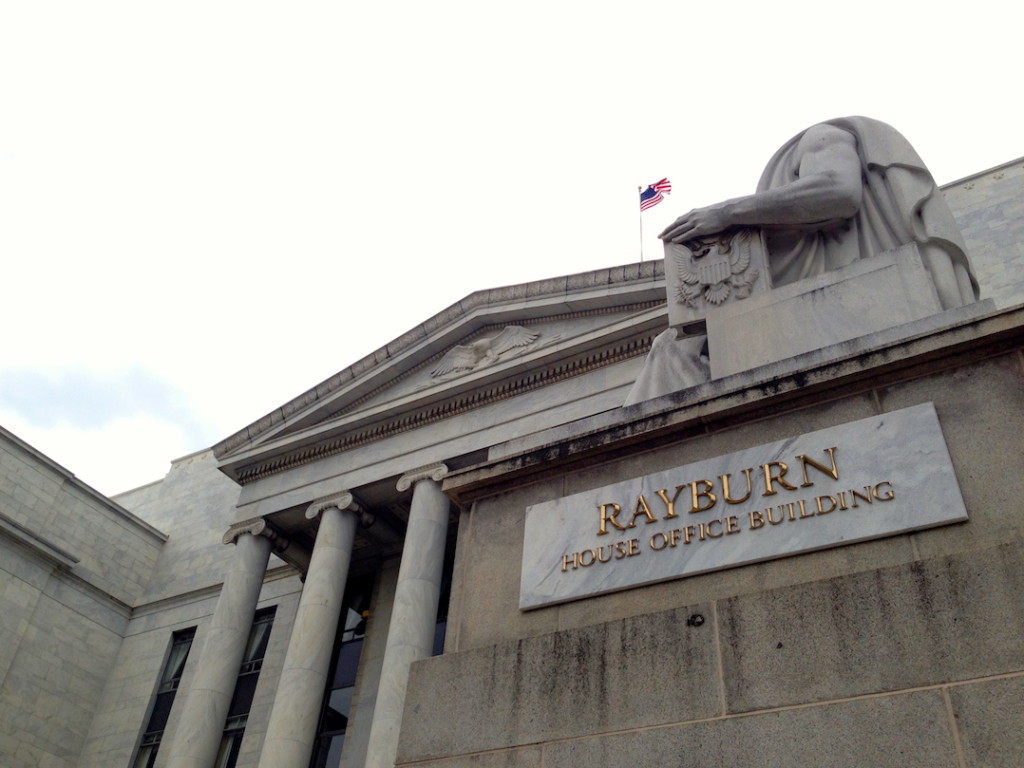
Legislators demanded answers from a USAID official in a meeting at the Rayburn Building, questioning the capacity of Afghan ministries to manage U.S. money. (John Kuhn/MEDILL)
WASHINGTON— The U.S. Agency for International Development has spent $17 billion since 2001 to help Afghanistan rebuild itself, but doesn’t have enough safeguards in place to ensure the money isn’t wasted or used fraudulently, members of a House subcommittee charged Thursday.
Seeking to determine the impact of the roughly $17 billion appropriated to USAID in the last decade, members of the national security subcommittee drilled USAID Assistant Director for Afghanistan and Pakistan Donald L. Sampler.
Subcommittee members questioned the capacity of Afghan ministries to manage the money, as well as USAID’s oversight in mitigating the risks that come with working in a country such as Afghanistan, which tied with North Korea and Somalia for most corrupt in a 2013 Transparency International ranking.
USAID “conducted its own risk reviews of seven of the 13 Afghan ministries and made 333 recommendations on how to mitigate the risk to USAID funds,” Rep. John Tierney, D-Mass., said in a prepared statement.
“Yet, the report goes on to state that USAID approved direct assistance at all seven Afghan ministries while only requiring 24 of the 333 recommendations to be implemented.”
Special Inspector General for Afghanistan Reconstruction John F. Sopko told the subcommittee that “USAID admitted to (his office’s) auditors that Afghanistan is the only country in the world where it waived its own strict internal policies before providing such direct assistance.”
Direct assistance, Sopko said, “must be conditioned on the Afghan government taking serious steps to reduce corruption and ensure vigorous oversight of these funds. … If the Afghan government fails to live up to its commitments, then we need to have the courage to say no.”
But Sampling disputed Sopko’s criticism, saying the internal controls were not in place at that time the direct assistance was approved. Rather, they were created because of lessons learned in Afghanistan, he said.
Though the USAID assistance in question is only a fraction of the $102 billion in federal aid provided for reconstruction in Afghanistan, it begs a larger question, committee members said.
“Is it realistic for the congress to appropriate money and then ask AID or military related reconstruction to do the impossible when the structural foundations of Afghanistan are based on the benefits of corruption?” Rep. Peter Welch, D-Vt., asked.
But Rep. Jason Chaffetz, R-Utah, said that after more than a decade, USAID and others working on Afghanistan reconstruction should have implemented better safeguards to address the corruption problem.
“My concern is when we’re a $102 billion into it,” he said, “we continue to pour money into this thing and we haven’t tackled the most basic problem, which I think is corruption.”
Afghanistan is days away from a presidential election, which will be the first democratic transfer of power to a new president in the country’s history.





